|
|

Bristol's early pottery industry was dependent on the fuel supplied from the Bristol coalfields and on the clay and claystone dug from local pits.
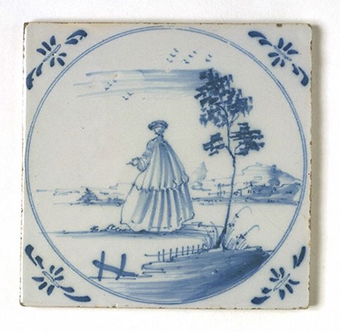
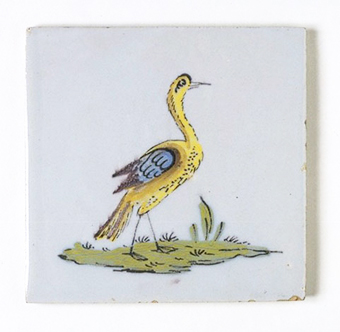
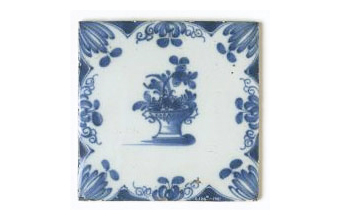
Tin-glazed earthenware tiles from Bristol, 1740-1775 (© Victoria and Albert Museum).
Bristol specialised in Delft ware, a heavy, tin-glazed, decorative earthenware created using a technique originating from Holland. Bristol's City Museum and Art Gallery has the largest collection of English Delft ware in the country.
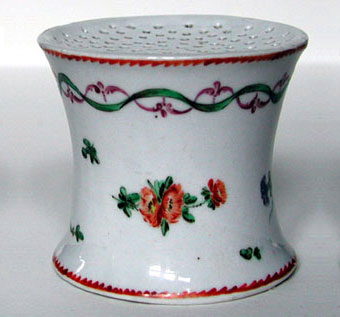
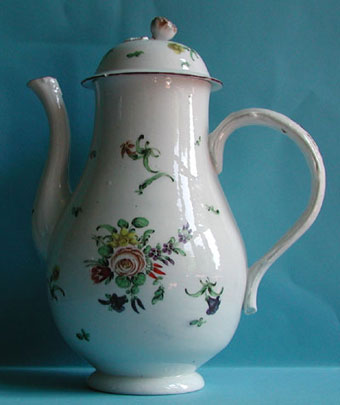
A Cookworthy pounce pot, 1770, and a Champion coffee pot, c 1775. Photographs from The Story of Bristol Pottery and Porcelain website.
Bristol was also briefly associated with the production of the more
sophisticated 'hard-paste' porcelain. William Cookworthy (1705-1780),
a Devon Quaker, had discovered a way of producing Chinese-quality
porcelain using Cornish china clay and stone. He initially set up
production in Plymouth but the factory closed in 1770 after only
two years and Cookworthy transferred operations to Bristol. The business
was taken over by Cookworthy's partner, Bristol merchant Richard
Champion (1743-1791). Having suffered serious financial losses, Champion
then sold the patent to a syndicate of Staffordshire potters in 1778,
bringing to an end Bristol's association with this particular product.
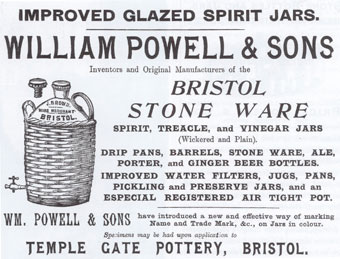
Advertisment for William Powell & Sons.
Meanwhile, most of the other potteries in the city had switched to manufacturing the more workaday cream tableware, redware (used for bricks, tiles, drain pipes) and stoneware (for jars and jugs).

Advertisement for Pountney and Company Ltd's Long Line kitchenware.
The longest-running Bristol pottery business was that of Pountney & Company Ltd, which remained in operation, in one form or another, from the 1650s to 1969.
|
|
|
|